The TransAfrica Highway, an overland route connecting African countries, is one of the greatest projects of our time. It begins in Cairo – Egypt and passes through Sudan, Ethiopia, Kenya, Tanzania, and South Africa. The highway is about 60,000 km long and passes through at least 18 countries. The TransAfrica Highway is recognized as an important route for trade goods. The main focus of this route is to improve economic growth across all countries involved by offering new opportunities for trade along the way.
The highway will traverse at least 18 countries.
The countries that will benefit the most from the highway include:
- Niger, Burkina Faso, Ghana, and Nigeria in West Africa;
- Ethiopia, Djibouti, Somalia, and Kenya in East Africa;
- Uganda and Rwanda in Central Africa;
The following countries will not benefit as much from this project because they’ll be bypassed by it: Eritrea (which is landlocked), Liberia (which is still recovering from civil war), and Angola (which has been rocked by political unrest). Others are Burundi, Eritrea, Eswatini, Somalia, Equatorial Guinea (Rio Muni), Lesotho, Malawi, Rwanda and South Sudan.
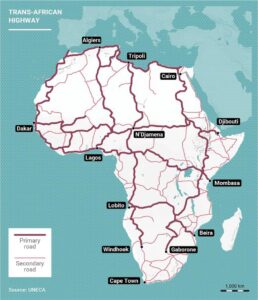
Trans-African Highway, Nine Highways under Construction to move people and cargo (Photo from WeBuildValue)
The highway is predicted to cost about 30 billion dollars.
A $30 billion price tag is the current estimate for this project. That’s a lot of money, but many factors determine how much it will cost:
- The highway will be about 60,000 miles, so it’s a large project.
- There are over 30 countries involved in building the new roadways and interchanges, and each country has its own regulations, laws, and customs to comply with when constructing highways through its territory. This can add additional time to construction efforts as well as increase expenses related to international travel logistics.
- The TransAfrica Highway will require many bridges and tunnels to span rivers or other obstacles along its path; these structures also add significantly to construction costs due to increased labor needs and specialized equipment needed for their design and construction (elevators).
It is expected to take about 10 years to complete.
The highway will be built in stages or phases. The first phase was completed in February 2018 and connects the Zambian capital Lusaka with the Democratic Republic of Congo’s capital Kinshasa via Zimbabwe’s capital Harare and Tanzania’s administrative capital Dodoma. The second phase will connect Lusaka with Nairobi via South Sudan’s capital Juba and Uganda’s administrative capital Kampala by 2022. A third phase has been planned but not yet funded; it will connect from Nairobi through Kenya’s western border town of Malaba before joining up with the Kenyan-Uganda Highway (A104), which leads southwards towards Mombasa on the east coast of Africa.
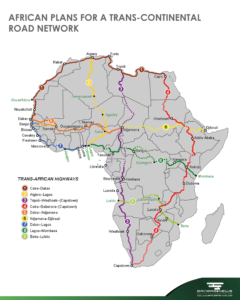
African plans for a trans-continental road network. (Photo from Baobab News)
Benefits and Costs
The project has caused some controversy, but it is expected to have many benefits for Africans and their economy.
The benefits include:
- Economic development
- Job creation
- Connectivity
- Improved access to markets
The costs include:
- Environmental impact
- Cost of construction
The TransAfrica Highway project will create jobs at all levels of the project from engineering and design, construction and road maintenance, logistics, in the supply chain, and at businesses that will receive increased access to markets with the opening of new roads. The jobs are expected to be created through a combination of private sector investments and public funding provided by African governments. There are many opportunities for contractors in this development stage, including materials suppliers, builders, and subcontractors.

Trans-African Highway Network Routes (Photo from WeBuildValue)
The TransAfrica Highway promises a more connected continent with more economic opportunities for Africans everywhere.
The TransAfrica Highway promises a more connected continent with more economic opportunities for Africans everywhere. It will provide greater mobility and access to markets, increasing economic opportunities for transportation companies, as well as the people who rely on them for their livelihoods. As it increases the economy, it will also increase the quality of life of those who live along its route.
If things should go according to plan, then the TransAfrica Highway could be Africa’s one of Africa’s biggest project if not the biggest of the century.
Do let me know your thoughts on this project!
Read Also: Here is why Africa’s transport system is underdeveloped
CHECK: DATABASE FOR AFRICA’S TRANSPORTATION PROJECTS
****Featured image source: We Build Magazine, Baobab News, Wikipedia
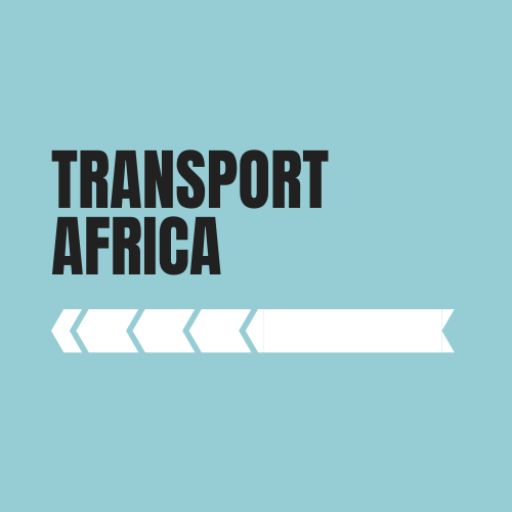
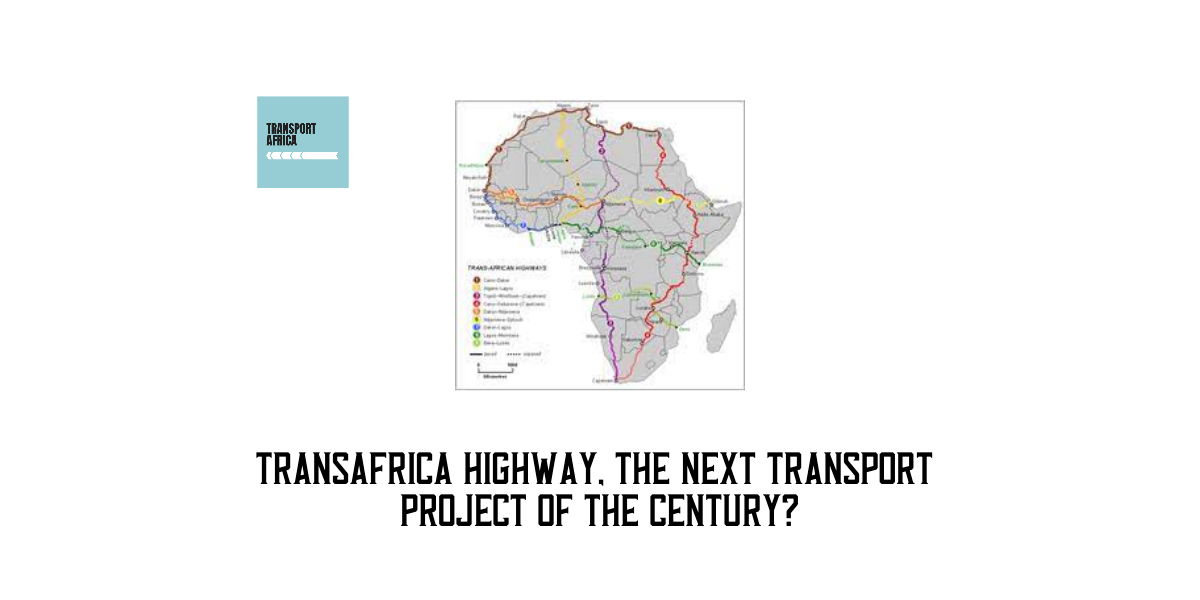

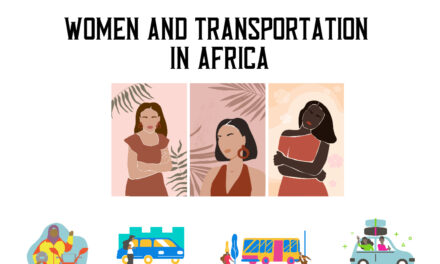
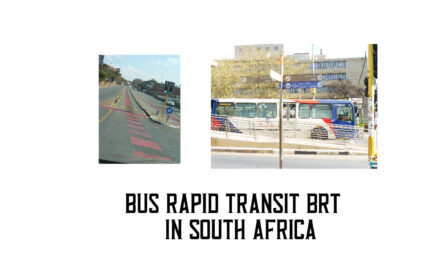
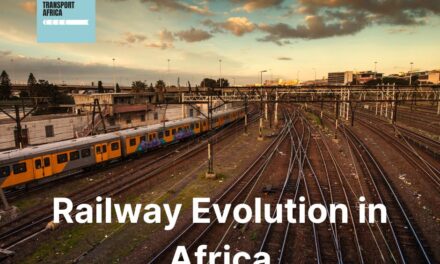
Thanks for another fantastic article. Where else may anyone get that type of information in such a perfect manner of…